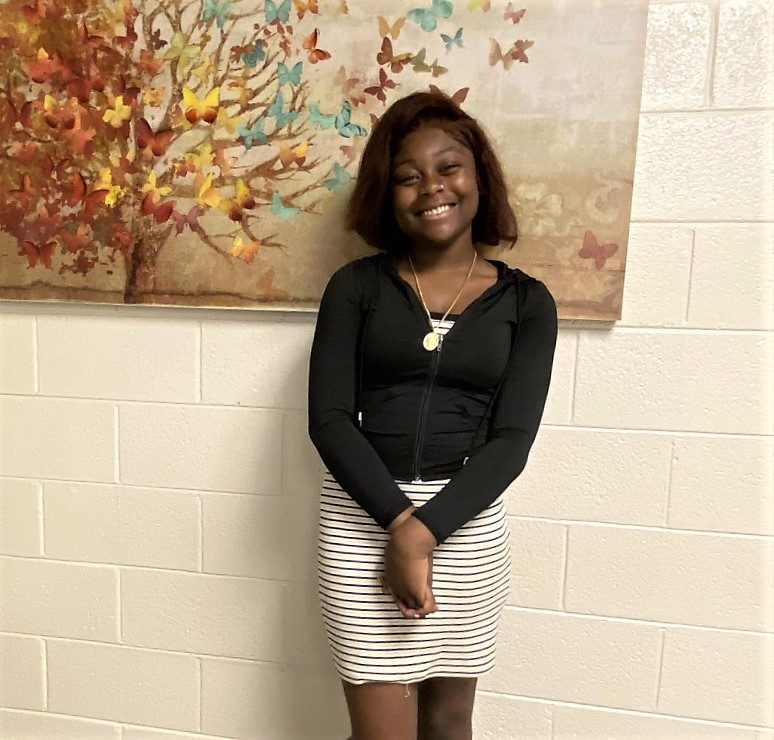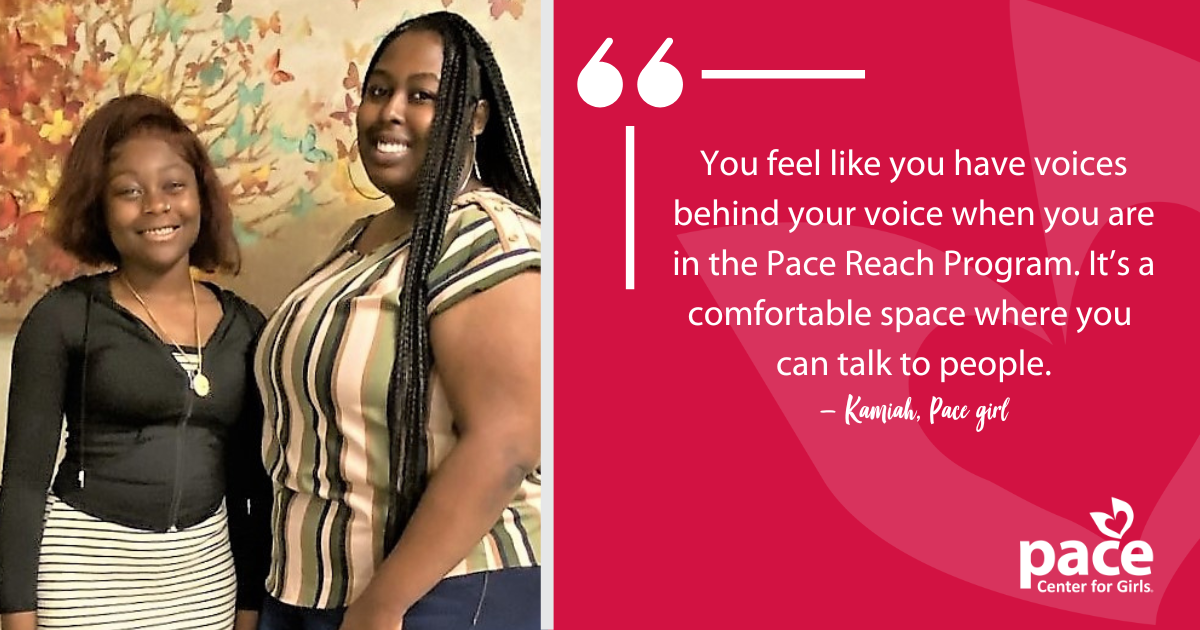Even before the COVID-19 pandemic, mental health challenges were the leading cause of challenging life outcomes in young people, with the Surgeon General Reporting in 2021 that up to 1 in 5 children ages 3 to 17 in the US have a reported mental, emotional, developmental, or behavioral disorder.
Exacerbated by issues like the COVID-19 pandemic, inequality, and economic instability, this crisis is being driven in part by young people’s lack of access to mental health services. Unfortunately, this disparity is even larger for BIPOC communities.
The Pace Reach Program is working to help bridge the gap to care by bringing mental health support to girls ages 11-17 at home, school, through their communities, and online.
To illustrate the impact of the Reach Program, we spoke with Kamiah Moore, a junior at Alfred Rush Academy in Florence, SC where she spends two days a week in the Pace Reach Program.

“Mental health is one of the most important things in the world,” said Kamiah, “without your mental health being stable, nothing else in your life is going to be stable.”
Kamiah’s wise words reflect the growth she has experienced during her time within the Reach program. In previous school settings, Kamiah struggled with behavioral issues. It wasn’t until Pace that she found her footing and reclaimed her mental health.
“You feel like you have voices behind your voice when you’re in the Pace girls group,” Kamiah says, while reflecting on the relationships she’s developed. “When you’re here, you build a family. It’s a comfortable space where you can talk to people.”
Addressing the youth mental health crisis requires a multi-faceted approach that meets youth on their terms. In Kamiah’s case, the gender-responsive and trauma-informed approach used by the Reach program speaks to her unique needs, especially when compared to her previous school experiences.
“When I first got to alternative school, I was the only girl in my high school section, so I was just with boys all day,” she said. “After being put in the Pace girls’ group, it helped me with my communication skills and my mental health a lot. When I started coming to the girls’ group, I started paying attention, talking, and getting everything off my chest. It started helping how I felt about myself and the way I wanted to carry myself.”
Kamiah isn’t the only one proud of her growth in the Reach program. Her counselor, Kristen Harrell has been working with Kamiah every step of the way and is no stranger to the challenges Kamiah has faced.
“I call Kamiah my Beyonce because she is a star,” said Kristen. “I’ve been able to connect so well with her and the other girls because I was once in their shoes. Growing up in Florence I got written up and kicked out of school. We didn’t have something like the Pace program and the safe space it provides.”
Whether they’re quoting TikTok memes, listening to Kamiah’s favorite artist Billie Eilish, or getting serious about Kamiah’s needs, the pair are a great example of the power that individualized support can have on a girls’ life.
For millions of girls like Kamiah, cost, distance, and lack of awareness act as insurmountable barriers to accessing the most essential of resources: a safe, judgment-free space. As Pace continues to expand our Reach programming, we do so with the mission of connecting girls with the resources they need to realize their full potential, regardless of who they are, or where they live.


